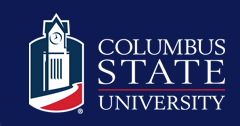Abstract
Analogies are commonplace heuristic tools in classrooms across all educational levels and content areas. In the present investigation, analogy-enhanced learning was examined in relation to conceptual applications of major developmental theories in undergraduate life-span development classes. To this end, systematic comparisons were undertaken between a learning condition in which individual students created their own analogies and a learning condition involving analogy co-construction as generated by small groups of students working cooperatively. On all quantitative and qualitative measures, results favored group co-construction of analogies over self-generated analogy creation. Findings are discussed in terms of social-constructivist and transformative-learning principles.
This is an original work
1
This work has not been previously published
1
IRB approval verification
N/A
Recommended Citation
Mayo, J. A. (2021). Analogy co-construction as a learning strategy in life-span development classes. Perspectives In Learning, 19 (1). Retrieved from https://csuepress.columbusstate.edu/pil/vol19/iss1/6

